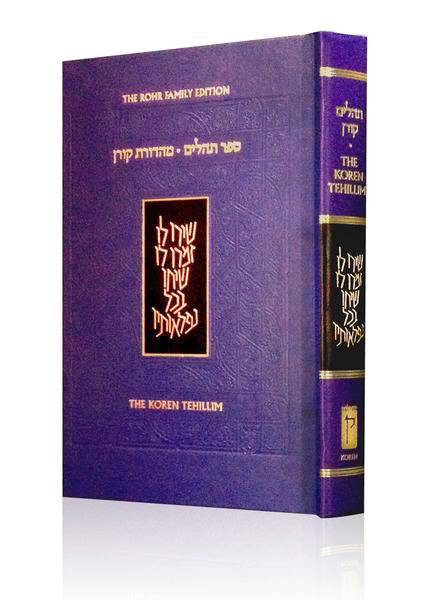Rabbi Weinreb’s practical view in ‘Koren Tehillim’
In “The Koren Tehillim,” Rabbi Dr. Tzvi Hersh Weinreb presents practical takes on each of the 150 psalms, helping us to better understand and appreciate their meaning.
The following is his introduction to this volume:
It has been said that the Five Books of the Torah are meant to be studied, the Prophets are meant to be heard, the Ketuvim such as Job or the Book of Esther are meant to be read. But Tehillim, Psalms, are meant to be said.
Traditionally, Tehillim are recited, unlike any of the other books of the Bible. In Yiddish, one says, “Tehillim, menn sagt Tehillim.”
It is for this reason that Tehillim, have become so personally relevant to the religious person, Jew, or gentile. People have historically turned to Tehillim in times of woe as well as in times of joy. They have discovered in the recitation of Tehillim a vehicle to express the entire range of human thoughts and emotions.
Thus, Tehillim have become the key to spirituality for all mankind. For the Jew especially, Tehillim are literally indispensable to the religious experience, to his relationship with G-d.
The importance of Tehillim for the inner life of the religious person necessitates that they be available to him in a manner that he can understand intellectually and integrate emotionally. Tehillim speak to both the heart and the mind.
This edition strives to make Tehillim conceptually meaningful and emotionally accessible.
Each individual psalm is preceded by a very brief meditation, written in the first person. This meditation attempts to capture the predominant mood of the psalm, the mood in which the person who turns to this psalm finds himself. The reader will be able to approach the psalm from his subjective feelings, and will be enabled to link the words of the psalm to those feelings.
These meditations are designed to evoke the array of feelings which are common to all humanity, and which are subjects of study for the existentialist philosopher and for the depth psychologist. Those feelings will include dread, hope, despair, courage, doubt, confidence, triumph, frustration, shame and pride, joie de vivre and fear of death, and more.
But psalms are not only designed to be read. They are also to be studied. And so, each psalm will be followed by a brief essay expounding upon one or two of its central teachings. Special attention will be given to those teachings which reflect the issues which the reader is likely to confront in his personal life in this day and age.
A meditation will precede, and a meaningful message will follow each kapitel, Yiddish for chapter, of Tehillim. That is the design for this commentary.
But perusing the commentary will not suffice. The words must be recited; ideally, first in Hebrew, and then in the exquisite and inspiring translation of Rabbi Eli Cashdan, to whom I am personally indebted for his rich and suggestive rendition of these timeless words.

 47.0°,
Overcast
47.0°,
Overcast 




